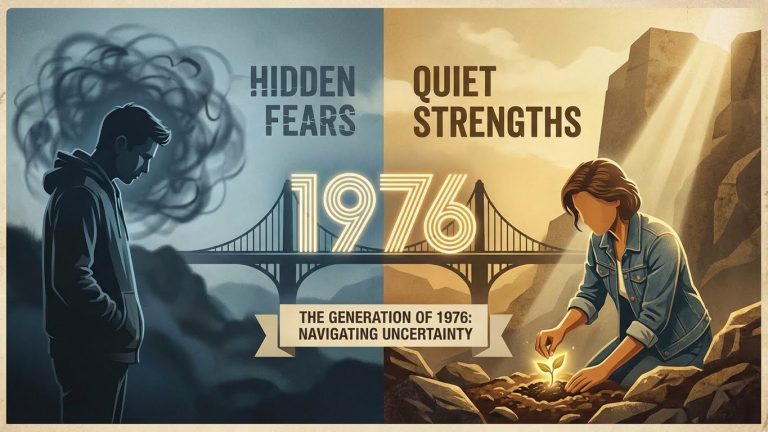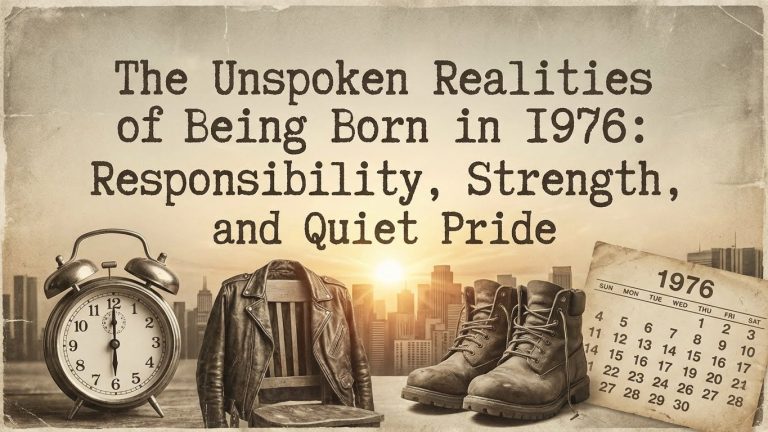Discipline is one of the most glorified concepts in the self-help and personal development world. It’s hailed as the cornerstone of success, the path to greatness, the trait that separates the winners from the dreamers. You’ve heard it before: “If only you had more discipline, you’d be rich, fit, successful, happy.”
But here’s the uncomfortable truth nobody really talks about: discipline is not what you think it is. It’s not motivation. It’s not about being hard on yourself. It’s not even about self-control in the traditional sense. And most importantly—it’s not a magical trait that some people are just born with.
Let’s break down the myths, the psychological traps, and the unexpected reality behind true discipline—and why most people are getting it completely wrong.
Myth #1: Discipline Is About Forcing Yourself
Most people think discipline means brute-forcing your way through tasks you hate. Wake up at 5AM. Grind at the gym even when you’re dead tired. Study for 8 hours a day. Never touch sugar again. Be a machine.
This mindset might work for a few days, or even weeks—but it’s unsustainable. Why? Because humans aren’t machines. We run on emotion, meaning, and identity. Willpower is a finite resource. If you’re constantly fighting yourself, you will eventually lose.
The truth? Real discipline is not about force. It’s about alignment. You need to align your goals with your identity and your systems.
Discipline Is About Identity, Not Willpower
James Clear, author of Atomic Habits, said it best: “Every action you take is a vote for the type of person you want to become.”
The real key to discipline isn’t grinding your teeth through discomfort. It’s becoming the kind of person who does those things effortlessly.
- You don’t force yourself to brush your teeth. It’s just part of who you are.
- You don’t debate every morning whether to go to work. You just go.
These actions aren’t powered by motivation—they’re driven by identity. When you shift your self-image from “someone who tries to be disciplined” to “someone who keeps promises to themselves”, everything changes.
Want to write every day? Don’t focus on forcing the habit—focus on becoming a writer. Want to eat better? Don’t obsess over calories—become someone who values health.
Discipline isn’t about the grind. It’s about consistency through identity.
Myth #2: Discipline Is Born from Motivation
Many people wait for motivation to strike before they take action. They watch motivational videos, read inspiring books, scroll social media for a spark.
But motivation is a liar. It comes and goes. If you rely on it, you’ll live in cycles—bursts of activity followed by long stretches of procrastination and guilt.
Here’s the truth: Discipline begins when motivation ends.
When the mood is gone, when nobody is watching, when you’re tired and it’s raining outside—that’s when real discipline kicks in. And what sustains you in those moments isn’t a quote on Instagram. It’s a system.
Systems > Goals
Goals are easy to set. “Lose 10kg.” “Finish a novel.” “Start a business.” But goals don’t get you results—systems do.
A goal is a result. A system is the process that leads to that result.
- Goal: Write a book
System: Write 500 words every morning at 7AM - Goal: Get fit
System: Train 3x a week at 6PM after work - Goal: Start a side hustle
System: Spend 30 minutes a day learning and testing ideas
If you focus only on goals, you’re focused on the outcome. If you build systems, you focus on the process—and the process is where discipline lives.
The most successful people don’t have better goals. They have better systems.
Myth #3: Discipline Is Always Rigid
There’s this image of discipline as cold, strict, and rigid. No fun. No spontaneity. No room for failure.
But rigid discipline is brittle. The moment life throws a wrench into your plan—sickness, travel, burnout—you snap.
Flexible discipline is the real superpower.
Discipline isn’t about perfection. It’s about getting back on track quickly when you fall off.
- You missed a workout? Okay—show up tomorrow.
- You ate junk food? Don’t spiral—reset at the next meal.
- You overslept? Adapt your day instead of writing it off.
The disciplined person isn’t perfect—they’re just resilient. They have a mindset of “never zero.” Do something small even on your worst day. Keep the flame alive.
The Role of Environment
People dramatically underestimate how much their environment influences their behavior. Willpower is weak. Environment is strong.
- If junk food is in your house, you’ll eat it.
- If your phone is in your hand, you’ll scroll.
- If your workspace is cluttered, you’ll procrastinate.
The truth is: discipline often means designing your environment so that the right choice is the easy choice.
- Want to run in the morning? Lay out your shoes and clothes the night before.
- Want to read more? Put a book on your pillow.
- Want to quit social media? Delete the apps, block the sites, use time limits.
Set up your surroundings to support your goals, and you won’t need superhuman willpower.
Discipline Requires Saying No (A Lot)
Another truth people avoid? Discipline means giving things up. You can’t have it all. You can’t be focused and distracted. You can’t be fit and eat whatever you want. You can’t work 10 hours on your dream and also binge Netflix every night.
Every “yes” to one thing is a “no” to something else.
True discipline means making painful trade-offs—on purpose. It’s about choosing what matters more over what feels good now.
- No to comfort, yes to growth.
- No to scrolling, yes to building.
- No to easy dopamine, yes to meaningful reward.
This is hard. And that’s why most people avoid real discipline. It demands clarity—and sacrifice.
Emotional Discipline: The Hidden Layer
Most people think discipline is about controlling actions. But the deepest level of discipline is emotional regulation.
- Can you stay calm when you’re angry?
- Can you remain focused when you’re anxious?
- Can you keep going when you’re discouraged?
This is the hidden battlefield. True discipline is about managing your inner world—your urges, fears, and stories. Because those are what sabotage your actions.
Meditation, journaling, therapy, self-awareness—these aren’t just “nice-to-have.” They’re tools for emotional discipline.
Without emotional mastery, external habits crumble under pressure.
You Don’t Need More Discipline—You Need Fewer Decisions
Decision fatigue is real. Every decision you make drains mental energy.
- What to wear?
- What to eat?
- When to work?
- Where to start?
Disciplined people remove decision points. They automate routines. They batch tasks. They create structure so that discipline happens by default.
Want to save energy for the hard stuff? Build routines that eliminate small choices.
- Same breakfast every day? Great.
- Workout schedule on calendar? Perfect.
- Block social media during work hours? Genius.
The less you rely on in-the-moment choices, the more consistent you’ll be.
Final Truth: Discipline Is a Skill, Not a Trait
The biggest lie of all? That discipline is something you either have or you don’t.
Wrong.
Discipline is a skill. It’s built, trained, and refined—just like any muscle. And like a muscle, it grows through repetition, rest, and progressive challenge.
Start small. Be patient. Be compassionate with yourself. You wouldn’t scream at a child for falling when they’re learning to walk—so why do that to yourself?
Celebrate small wins. Focus on consistency, not intensity. And remember: every time you follow through on your word—even in a tiny way—you’re casting a vote for the disciplined version of you.
Closing Thoughts
The truth about discipline is not glamorous. It’s not a hack. It’s not sexy. It’s not built in 21 days.
But it’s worth it.
Because when you cultivate true discipline—not the forceful, punishing kind, but the aligned, sustainable, identity-driven kind—you become unstoppable.
Not because life gets easier.
But because you get stronger.











